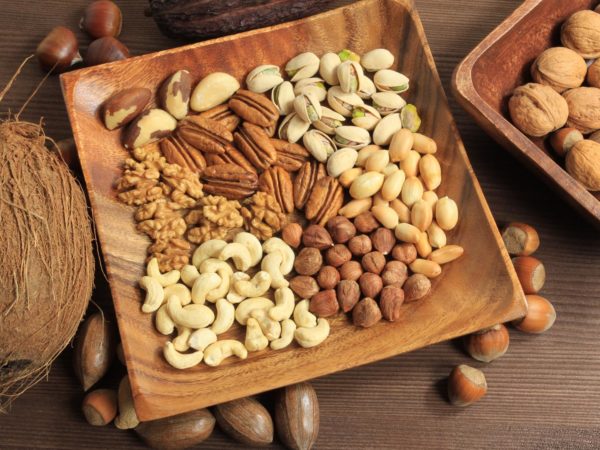Are Walnuts Healthier Than Pecans?
You recommend walnuts as a good vegetarian source of omega-3, but I’ve read that walnuts are “mildly inflammatory,” as opposed to, say, pecans which have much less omega-3 but are rated as “mildly anti-inflammatory.” Which is the better trade-off?
Andrew Weil, M.D. | June 7, 2010

I wouldn’t worry about slight variations in the inflammatory properties of walnuts, pecans or other nuts. These opinions are based on the fact that nuts contain omega-6 fatty acids (which are pro-inflammatory) as well as omega-3s. While you wouldn’t want them to be the only thing you eat, in general, nuts are healthy choices, and I prefer walnuts because of their better fatty acid profile. They’re a good source of alpha-linolenic acid (ALA), a fatty acid similar to the heart-healthy omega-3 fatty acids found in fish. If you buy packaged walnuts, you may have noticed the FDA-permitted qualified health claim on the labels stating that eating 1.5 ounces daily, “as part of a low saturated fat and low-cholesterol diet, and not resulting in increased caloric intake, may reduce the risk of coronary heart disease.” In 2010, a large food company ran afoul of the FDA because of label claims that walnuts could do much more, including claims that went beyond the qualified health claim the FDA permits.
A sensible guideline on the amount of nut consumption that is good for you came from the ongoing Nurses’ Health Study at Brigham and Women’s Hospital in Boston and the Harvard School of Public Health. That study, which is monitoring the health of 86,000 nurses, showed that those who ate more than five ounces of nuts per week (the amount you would get by eating a portion about the size of a single airline packet daily) had one-third fewer heart attacks than those who rarely or never ate nuts. I limit myself to a handful per day of my favorites – cashews, almonds, and walnuts.
I also like Brazil nuts, which I eat occasionally for the selenium they contain, and pistachios. One ounce of pistachios contains more fiber than a half-cup of spinach and the same amount as an orange or an apple. These nuts also are good sources of vitamin B-6, thiamin, copper, phosphorus, and magnesium.
Enjoy nuts as part of a healthy diet, essential for healthy aging. Try a variety, steering clear of nut products laden with salt or artificial flavorings. Focus on the overall health benefits rather than minor nutritional differences when making your choices.
Andrew Weil, M.D.










